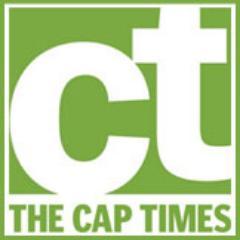Indie folk trio The Lone Bellow benefits from National attention
JOSHUA M. MILLER | Special to the Cap Times Mar 23, 2016
For many bands, finding a producer is merely a quest to find someone that can capture their vision on a recording, and the relationship typically ends following the final take.
Sometimes though, that partnership can blossom into a full-blown friendship. That happened for Brooklyn-based folk trio The Lone Bellow, who are playing the Wisconsin Union Theater on March 30.
The band’s second album, “Then Came the Morning,” came out early last year, and the trio has kept in touch with producer Aaron Dessner ever since. Dessner is a guitarist with the National, and co-created the Eaux Claires Music Festival with Justin Vernon of Bon Iver.
Since recording the album, the Lone Bellow contributed music to The National’s upcoming Grateful Dead tribute album, “Day of the Dead,” and this summer will be opening shows in California for the National.
“That’s the way he works,” Lone Bellow singer Zach Williams said in a phone interview. “He doesn’t just make albums, he likes bonding friendships and other projects together. So it’s been an honor to be affiliated with that.”
Besides being a big fan of The National, Williams says he and members Brian Elmquist and Kanene Pipkin initially reached out to Dessner after reading an interview Dessner and Matt Berninger did.
“I really appreciated what Aaron and Matt had to say (in the interview) about how they work and how they take care of each other and the band and the way that they make music,” says Williams. “So we reached out to Aaron about producing and ended up going over to his place for coffee at his house in Brooklyn and we just hit it off. We were like two peas in a pod.”
The band recorded the majority of the new songs live in at Dreamland, a 19th-century church in upstate New York that had been converted into a recording studio. Sitting in a circle in the church’s old sanctuary, Williams says “there were microphones hanging in the ceiling and the crevices of the floor and the microphones we sang into as well so we could try our best to capture the room.
“It was great for the harmonies and for the sound of the electric guitar being able to ring out in a big open room,” Williams says. “It had all these wonderful old keyboards and pianos and huge African drums.”
Many of the songs on the album were written on the road, where the band has spent much of its time since quitting their day jobs several years ago.
“These days folks don’t buy records like they used to so you have to tour and work,” says Williams. “So we try to write on the road as much as possible. And when we’re home we get together and write as well….You get in a habit of journaling a lot and you get to know yourself a little better.”
Growing up in Georgia, going to college in Florida and living for the past decade in Brooklyn have also shaped his songwriting, says Williams.
“I really believe a city can really help clarify any artist’s work,” he says. “The energy of New York certainly has certain energy to it that you gravitate towards….I love getting to hear the different vibes in different cities. New York has kind of a punch in the gut kind of vibe. I think that’s helped us create our work.”
Besides the shows with the National, Williams is also looking forward to playing shows with the Baltimore Symphony and in Cumberland Caverns in Tennessee for PBS’ show “Bluegrass Underground.” He says they’re planning to keep writing new songs and thinks they might eventually release a live album of a show they did in London.
Williams says every song has taken a life of its own in the past year or touring and says it’s been an honor to sing them with his best friends. It’s been a joyful experience watching their audience grow and react to their songs in a powerful way, he says.
“There has been a lot of story and life that’s come out when we get to know our audience,” Williams says. “Especially after the shows we hear their stories. That brings a lot of significance to the work that we do and that definitely plays into the things that we try to get across in the song.
“I always love when someone maybe had one of their first dances at the wedding to one of our songs. Or there’s one lady in particular who told us that she played the record a lot while her father was passing and it ended up meaning a lot to her. It’s just a mysterious thing having your work invited into situations like that. It’s a very beautiful thing.”
